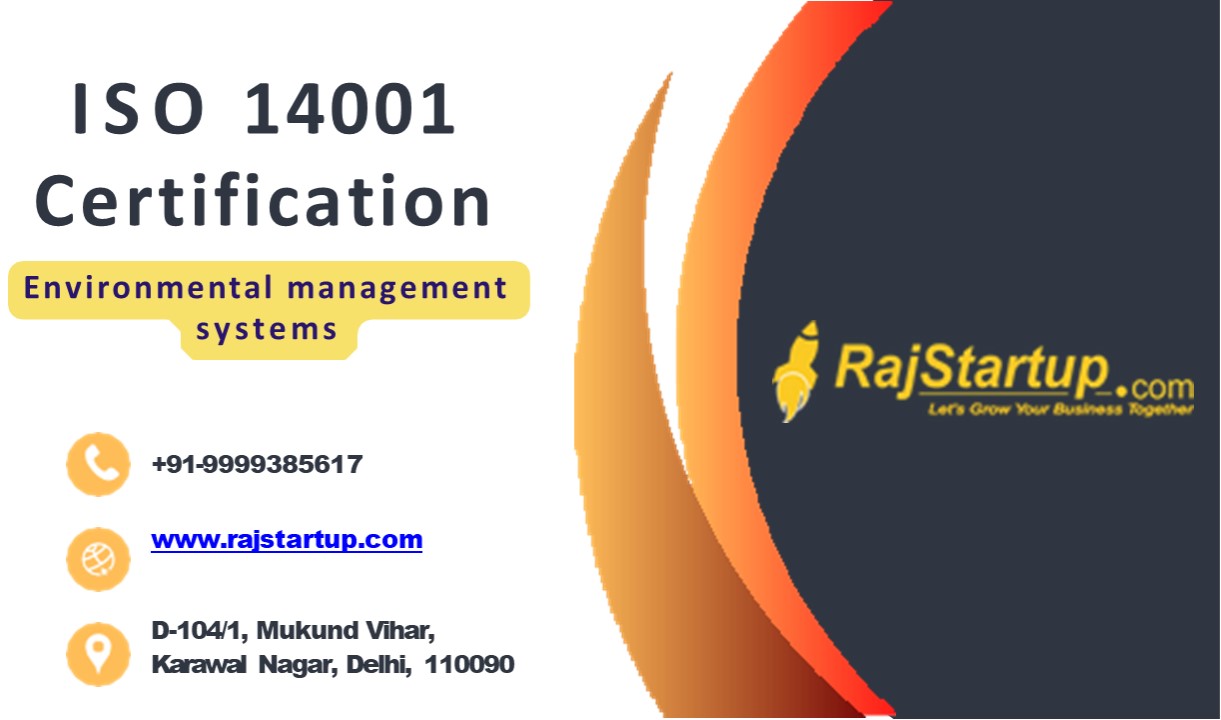ISO 14001 Certification Process manual - PowerPoint PPT Presentation
Title:
ISO 14001 Certification Process manual
Description:
Creating a process manual for ISO 14001 involves documenting the environmental management processes within your organization in accordance with the ISO 14001 standard. The following is a generic outline for a process manual: – PowerPoint PPT presentation
Number of Views:5
Title: ISO 14001 Certification Process manual
1
ISO 14001
Certification
Environmental management systems
91-9999385617 www.rajstartup.com D-104/1, Mukund
Vihar, Karawal Nagar, Delhi, 110090
2
Contents
ISO 14001 in Brief Why is ISO 14001 Key Elements
of ISO 14001 Key Benefits Certification Process
Time Duration Manual Process SOP's Do Don'ts
3
ISO 14001 in Brief
- ISO 14001 is an international standard that
specifies the requirements for an environmental
management system (EMS). It provides a framework
for organizations to establish and implement
policies and procedures to manage their
environmental aspects and impacts. The standard
is designed to help organizations improve their
environmental performance, comply with applicable
legal and regulatory requirements, and
demonstrate a commitment to sustainability. - For More info read this article- ISO 14001
Certification
4
Why is ISO 14001
ISO 14001 is important for several reasons, as it
addresses environmental management and
sustainability within organizations. Here are key
reasons why ISO 14001 is significant ISO 14001
is valuable because it provides a structured
framework for organizations to manage their
environmental impact, ensuring compliance with
regulations, improving efficiency, and
contributing to broader sustainability goals. It
aligns environmental responsibility with business
objectives, promoting long-term success and
positive contributions to the planet.
5
Key Elements
- Environmental Policy Planning
- Implementation and Operation Monitoring and
Measurement Evaluation of Compliance - Review of the EMS by Top Management Continual
Improvement
6
Key Benefits
Improved Environmental Performance Legal
Compliance Cost Savings Enhanced Reputation
Competitive Advantage Employee Engagement Global
Recognition
7
Certification Process
Gap Analysis Training and Awareness Establish
the EMS Internal Audit Management
Review Select a Certification Body Application
for Certification Stage 1 Audit (Documentation
Review) Stage 2 Audit (On-site Assessment)
Audit Findings and Corrective Actions
Certification Decision Surveillance Audits
8
Time Duration
Gap Analysis and Preparation (2-6
months) Training and Awareness (1-2 months) EMS
Implementation (6-12 months) Internal Audit and
Management Review (2-3 months) Selection of
Certification Body and Application (1-2
months) Stage 1 Audit (1-2 months) Stage 2
Audit (On-site Assessment) (1-2 months) Audit
Findings and Corrective Actions (1-2
months) Certification Decision (1-2 months)
Issuance of Certificate (1-2 months)
9
Manual Certification Process
Establish a Documentation Team Review Existing
Processes Identify Key Documents Define
Processes Document Procedures Review and
Approval Implementation Monitor and Update
10
Standard Operating Procedure (SOP)
Manual Document Control Version history
Approvals Distribution list Record of changes
11
Section 1 Introduction
Purpose Clearly state the purpose and objectives
of the SOP manual. SOP Development
Process Identify the roles and responsibilities
of individuals involved in SOP development,
review, and approval.
12
Section 2 SOP Development Process
Responsibility Identify the roles and
responsibilities of individuals involved in SOP
development, review, and approval. Review and
Approval Process Outline the steps for reviewing
and approving SOPs, including the involvement of
relevant stakeholders.
13
Section 3 SOP Structure and Format
Title and Numbering Establish a standardized
title and numbering system for SOPs. Header and
Footer Define the information that should be
included in the header and footer of each
SOP. Formatting Guidelines Provide guidelines
for font, font size, spacing, and other
formatting aspects.
14
Section 4 SOP Content
Objective Clearly state the objective or purpose
of the SOP. Scope Define the boundaries or
limits of the procedure. Definitions Include
definitions of terms or acronyms used in the
SOP.
Responsibilities
Clearly outline the responsibilities of each role
involved in the process.
15
Section 5 Document Review and Revision
- Review Frequency
- Specify how often the SOP should be reviewed.
- Revision Process
- Describe the process for making revisions,
including version control.
16
Section 6 Training and Implementation
Training Requirements Identify training needs
for personnel involved in executing the
procedure. Implementation Plan Provide guidance
on how and when the SOP will be implemented.
17
Section 7 Record Keeping
Documentation Specify any records or logs that
need to be maintained as part of the
procedure. Storage and Access Outline where
records will be stored and who has access to them.
18
Section 8 Appendices
Appendix A Forms Include any forms mentioned in
the SOP. Appendix B Supporting Documents Attach
any supporting documents or references.
19
Section 9 Contact Information
Key Contacts Provide contact information for
individuals or departments related to the
SOP. Appendix B Supporting Documents Attach any
supporting documents or references. Section 10
Approval Signatures Include spaces for signatures
of individuals who have reviewed and approved the
SOP.
20
Review and Update Process
Describe how and when SOPs will be regularly
reviewed and updated. Remember that SOPs should
be clear, concise, and easily understandable by
the individuals who will be using them. Regular
reviews and updates are crucial to ensure that
SOPs remain relevant and effective in supporting
organizational processes and objectives.
21
Do Don'ts
Implementing and maintaining an Environmental
Management System (EMS) based on ISO 14001
involves specific considerations. Here are some
"Do's and Don'ts" for ISO 14001
22
Do Establish Clear Objectives Do Involve Top
Management
Do
Do Identify Environmental Aspects and Impacts Do
Implement Operational Controls Do Ensure Legal
Compliance Do Conduct Regular Internal Audits
Do Provide Training and Awareness Do Establish
Emergency Preparedness Do Monitor and Measure
Performance Do Continuously Improve
23
Don'ts
Don't Overlook Context and Stakeholders Don't
Ignore Environmental Legal Requirements Don't
Isolate the EMS Don't Delay Corrective Actions
Don't Rely Solely on Documentation Don't Assume
One Size Fits All Don't Neglect
Communication Don't Forget to Monitor External
Providers Don't Disregard Employee Input Don't
Stop at Certification
24
For More info contact us
www.rajstartup.com info.rajstartup.com 91-9999385
617































